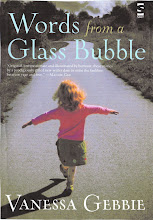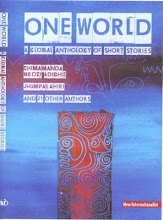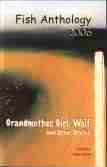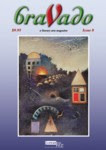
In his endorsement, James Thomas, co-editor of Sudden Fiction and Flash Fiction Forward says:
“How many words does it take to tell an important story? In the many words contained in this Field Guide, written by masters of the short-short fiction form, you may begin to understand. Or not. There always remains the mystery that is fiction itself. Let's be glad.”
I have neglected the lovely Field Guide to Writing Flash Fiction (Rose Metal Press, USA, 2009), which has now been out for some months. This book has received stunning reviews, including this much-coveted starred review from Publisher’s Weekly. HERE.
Accessible enough for pleasure reading but instructive enough for the classroom, this volume brings together brief essays by 25 writers known for their talent in flash fiction, aka the “short short story,” roughly defined as a tale “1-3 pages and 250-1,000 words” long. Along with personal musings on the genre, each author provides a prompt, and their own short piece to illustrate it. Editor and fiction writer Masih provides a remarkably thorough history of flash fiction, dating the phrase “short short story” to a 1926 issue of Collier’s Weekly. Contributors include award-winning writer Jayne Anne Phillips, who writes that “one-page fiction should hang in the air of the mind like an image made of smoke”; Shouhua Qi shares his thoughts on the Chinese short short, which they also call a “Smoke-Long story,” as in the time it takes to smoke a cigarette; and Vanessa Gebbie, who reminds us of Hemmingway's famous 6-word story: “For sale: baby shoes, never worn.” Robert Olen Butler and Steve Almond discuss the difference between flash fiction and prose poetry, the former remarking that “fiction is the art form of human yearning”; Almond, meanwhile, chronicles his journey from bad poetry to good short stories. An expansive list of further reading rounds out this smart, fun, provocative guide to an increasingly popular form.
Another heartwarming review from Flash Fiction Online, by Jake Frievald, HERE: picks out my work and that of Steve Almond, very generously:
“…many essays reminded me of the educational power of a good story. Vanessa Gebbie’s description of what flash means to her, ultimately encapsulated the words, “You blink. But no — it is not over,” is a tiny story that makes you want to write something that reaches her — reaches anyone — like that. Steve Almond’s essay, subtitled “How Writing Really Bad Poetry Yields Really Better Short Stories” made me laugh; and his advice may not be applicable to everyone, but I wanted to try it just to see if it worked for me.
These things will stick with me. They are, for me, the heart of the book.
What a wonderful thing to say. And how mesmerising to be a paragraph-fellow with Steve Almond!
New Pages carried a review back in August, by John Madera, HERE:
“For the beginner, the book is a tremendous resource offering various glosses and overviews of the short short’s history and widely divergent definitions of this resurgent genre. Each of the twenty-five brief essays here, written by twenty-five peerless writers and editors, is followed by an exercise or prompt, and includes a demonstrative story.”
How Publishing Really Works carried a review by Jacky Taylor, HERE. Jacky is a colleague. But I was still delighted to read this:
“It seems churlish to single out specific authors from the pack when so much of the writing here is good, but both Jennifer Pieroni and Vanessa Gebbie deserve a special mention for getting me to briefly abandon this review, in order to go and write a new flash myself! I really can't think of a better recommendation than that.”
Fiction Writers’ Review carried a review by Sophie Powell, Professor of Creative Writing at Boston College: You can read the whole review HERE, but here is an excerpt:
“
This book is an Aladdin’s cave of gems, a brilliantly versatile guide to invigorate any written piece, any writer’s working life. Flash fiction is the impetus for all these essays, and the fantastic prompts and exercises that each includes, yet most of the commentary and advice can be applied to stimulate and aid any creative writer. For example, Vanessa Gebbie encourages us to try writing freely and continuously, without pausing and censoring our words, in responses to certain prompts, telling us “I have seen whole stories written in this way in a very few minutes. And in my own case, I know that work produced like this has a liveliness that writing I agonize over for days just does not”.
And
“It is a testament to the book’s impact that I am using it as a set text for my creative writing classes next year. Hopefully the day is not too far away when we will see a flash fiction collection win a prestigious literary prize like the Booker. The best things do often come in small packages.”
.
How lovely. It is such an affirmation to see some generous comments about my chapter. But also, it is such an affirmation of the vision of the small press that backed this book -Rose Metal- and the skills of the editor -Tara Masih- who worked so hard to make it appear.

















.JPG)






















